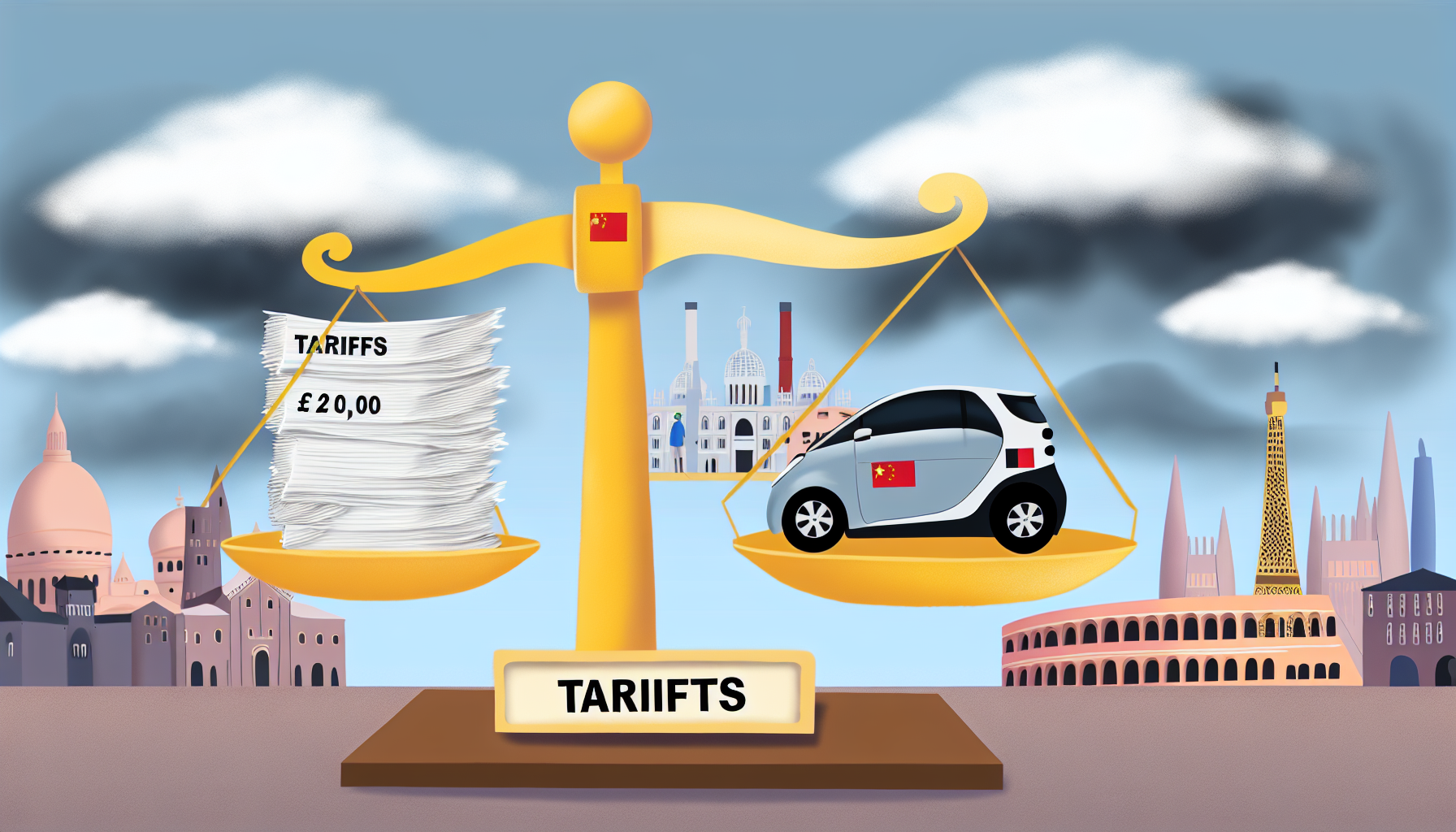In what can be considered a significant change in global trade dynamics, the European Union (EU) recently imposed new tariffs on electric vehicles (EVs) coming from China. As a result, Nio, one of the leading Chinese EV manufacturers, indicated that they might have to increase the prices of their cars to offset the extra costs.
Understanding the new EU tariffs on Chinese EVs
The new EU-imposed tariffs are a part of an ongoing effort to foster competitiveness in Europe’s rapidly growing electric vehicle market. They specifically target Chinese electric car manufacturers who, for quite some time, have been selling their vehicles at relatively low prices across the European market. The tariffs are aimed at leveling the playing field, thus creating an environment where European manufacturers can compete more effectively.
Unfortunately, this move also means increased prices for consumers. Despite this, some experts argue that this will incentivize local production and stimulate investment in Europe’s EV industry. Consistent with this viewpoint, I too believe that the imposition of tariffs, although disruptive in the short term, can in fact spur long-term growth and innovation in European industries.
How Nio and other Chinese EV manufacturers may respond
The announcement from Nio, one of the most impacted by these new tariffs, signals that the company is considering increasing the prices of its EVs for the European market. Such price alterations would certainly influence the purchasing decisions of potential consumers. This change could see some European customers turn to home-grown models instead, thus boosting local EV sales.
However, it’s also worthwhile to consider there might be alternative strategies at play to counter these tariffs. For instance, Chinese manufacturers could consider setting up local production plants within Europe. This would allow them to avoid tariffs, while also contributing to local economies by creating jobs and fostering technological skill sets.
This isn’t merely theoretical, either. Automobile giant Tesla has already adopted a similar strategy, with their Gigafactory in Berlin slated to start production in the near future, demonstrating that this business model is both viable and successful.
It’s important to remember that this situation is ever-evolving. Both Chinese manufacturers and the EU will have to adjust their strategies as the market continues to grow and adapt. Nevertheless, staying informed about such occurrences can help us better understand the driving forces behind the tech industry and predict forthcoming developments.
What this decision represents, most fundamentally, is that the world is taking note of the massive potential of the electric vehicle industry. Governments are policy-tailoring to enhance competitiveness and inducement of investments. For us as consumers, it means a wider range of products to choose from and the assurance that our move towards sustainable transportation is receiving global attention and support.
Liam Nguyen is a tech enthusiast and writer with a genuine passion for all things related to technology and the web. At the age of 32, Liam has already carved out a niche for himself as a go-to source for insights on emerging tech trends, gadget reviews, and practical advice for navigating the digital age. With a Bachelor’s degree in Computer Science from a well-known tech university, Liam combines his technical expertise with a clear, accessible writing style.
Starting his career as a software developer, Liam quickly realized that his true calling was in demystifying technology for the masses. He transitioned to tech journalism, where he now serves as a contributor to a popular online technology news platform. In his articles, Liam covers a broad spectrum of topics, from the latest smartphone releases to in-depth guides on cybersecurity, aiming to keep his readers informed and ahead of the curve.
Liam’s approach to writing is grounded in the belief that technology should empower and connect people. He has a particular interest in open-source projects and the democratization of technology, themes that frequently appear in his work. Liam’s ability to explain complex technical concepts in an engaging and straightforward manner has endeared him to a diverse audience, from tech aficionados to novices looking to get the most out of their devices.
Aside from his written work, Liam is active in online tech communities, participating in forums and social media discussions. He’s also been known to guest lecture at his alma mater, sharing his journey and inspiring the next generation of tech enthusiasts.
Liam’s dedication to the tech community and his knack for clear communication make him an influential voice in the tech and web category, always eager to explore how technology can make our lives better and more connected.
